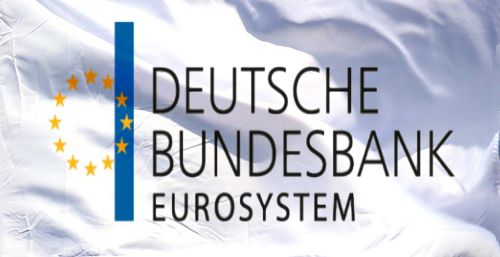GERMANY TACKLES THE EUROPEAN UNION |
|
The May 5, 2020, a German court made a decision that could jeopardize the eurozone. The German Constitutional Court has indeed called on Tuesday the European Central Bank to justify "within three months" its redemptions of public debt, thus weakening its vast support for the economy in the midst of a coronavirus pandemic. The quantitative easing (QE) policy of the European Central Bank has in fact been judged partly unconstitutional in Germany according to the judges of the Court of Karlsruhe
"For the first time in its history, the German Constitutional Court finds that the actions and decisions of the European institutions have clearly not been taken within the framework of European competences and therefore cannot have any effect in Germany" declared Andreas Vosskuhle, President of the German Constitutional Court This resounding ruling sounds like a challenge to the European institutions by targeting the anti-crisis program carried out since 2015, at the same time as the Frankfurt Institute is strengthening it in the face of the consequences of the health crisis. Formally, however, the judgment rendered on Tuesday "does not concern" the emergency pandemic program (PEPP), announced in mid-March by the ECB and endowed with 750 billion euros by the end of the year. , remind the magistrates. Bundesbank could stop buying debt for the ECB Concretely, the powerful German Central Bank will be prohibited from participating in these massive buyouts of sovereign bonds if "the Governing Council of the ECB" does not demonstrate their "proportionality", decided the German supreme court. Clearly, the Frankfurt institution must establish by the month of August, in an "understandable and detailed", that the positive effects of this program outweigh its disadvantages. The ECB has for years been arguing for this “quantitative easing” or “QE”, criticized in particular in Germany, explaining that it wants to stimulate the supply of credit, and therefore ultimately growth and employment in the euro zone. For the German judges, the ECB has not justified the principle - sacrosaint in Germany - of proportionality between the significant resources released and its mission to ensure price stability in the euro zone, ie an inflation rate close to but below 2%. It is suspected across the Rhine that this monetary policy would have been used more to subsidize the countries of the south of the euro zone, to the detriment of the German saver, while ignoring the treaties which impose to distribute the financing in the zone in due proportion the participation of each country in the capital of the ECB *. Germany is therefore reluctant to pay for the countries it once called the "club med": Italy, Greece, Portugal and Spain, which it accuses of lax budget. We could add France. Seized by several Eurosceptic applicants, the Constitutional Court admittedly admitted that it had "not been able to establish a violation" by the ECB of the prohibition imposed on it to finance European states directly. But in a decision of a rare virulence, the magistrates of Karlsruhe judge "doubtful" the competence of the institute of Frankfurt to redeem massively of the public debt, that is the main part of the 2,600 billion euros injected on the markets March 2015 and December 2018 as part of the "QE", reactivated last November. "Because of their responsibility for integration, the federal government and the German Bundestag are obliged to oppose the previous treatment of the PSPP (the ECB buy-back program)," said the decision. It remains to be seen whether the federal government and the German Bundestag will follow the German Constitutional Court. But more generally, this decision poses the fundamental question of Germany's accession to the euro zone when the monetary institution appears to be the only solid pillar of the euro zone to face the health and economic crisis caused by the Covid-19. |
|
| Jaimie Potts for DayNewsWorld | |
 |
|




